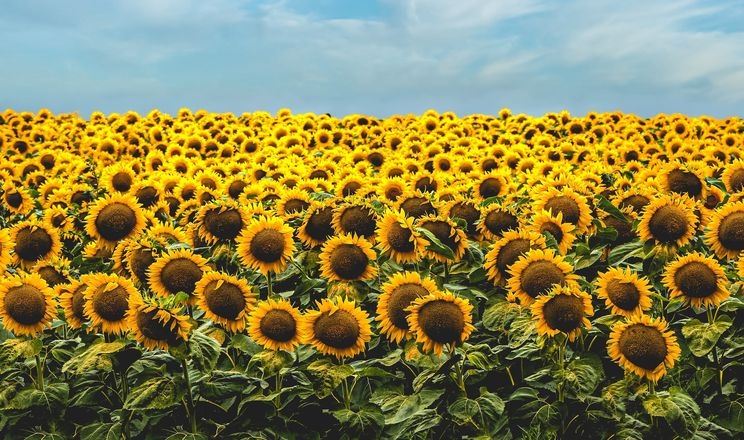Global supply turmoil could see British potato farmers switch to cereals or oilseeds

Turmoil in world food commodity markets could lead to significant short-term changes to potato production in the UK and beyond, growers have warned, as the sector adjusts to soaring costs and volatile demand wrought in part by the Russian invasion of Ukraine.
According to Mark Taylor, chairman of the Fresh Potato Suppliers Association, some farmers in Britain were likely to switch to growing in-demand grains and oilseeds this year after the war further tightened global markets and pushed up prices – in part due to the antagonists ranking among the world’s main sources of corn, maize, wheat and sunflower oil.
Taylor envisaged British farmers seeing “increased opportunities in wheat and rapeseed” this year, which could in turn result in a smaller potato harvest.
And while there had been a “high availability of potatoes” so far this year, according to Jack Hamilton, COO of County Down-based Mash Direct, “that could change as the year goes on”.
Hamilton said he had heard of potato farmers elsewhere in the UK switching to cereals and oilseeds, with others saying more expensive fuel and fertiliser meant they were likely to sit this year out completely.
“The main thing so far has been the shortages, the rising costs of fuel, of fertiliser, of labour,” Hamilton said, warning the full impact of more than a year of supply chain turmoil and inflation was yet to be fully felt by farmers or consumers.
All the same, the growing likelihood of a smaller potato crop was not likely to lead to spud shortages or price spikes, Taylor suggested, as the UK was “probably overproducing already” and had sufficient supply for the home market.
Potatoes had not seen the same cost and supply problems affecting other sectors or products, with prices of wheat-based budget pastas and breads up 50% and almost 20% year-on-year respectively, according to “experimental” official estimates published by the ONS last week. The figures showed potatoes falling in price by almost 15% over the period and chips down 3%.
Both Hamilton and Taylor welcomed the prospect of some farmers switching to other crops. The affected land would likely benefit from rotation into grains and oilseeds, Taylor explained, while Hamilton said increased supply of rapeseed would benefit his business, which uses the oil in production of off-the-shelf meals such as beer-battered chips.
However, what Taylor said were “dramatic” market uncertainties fuelled by the Ukraine war meant farmers would likely hold off on deciding what to plant until as late in the year as possible.
Less well known than their huge outputs of grains and seeds, Ukraine and Russia were also among the world’s top five potato-growing countries before the invasion – meaning if their exports were to drop, farmers in other supplier nations could be handed an opening.
Reduced output elsewhere meant there “might be some opportunity” for UK growers, said Taylor, who is leading efforts to establish a new industry organisation to be called GB Potatoes.
Hamilton said Mash Direct, which grows the potatoes it transforms into prepared dishes such as champ and colcannon, would expand its crop acreage this year by 25% as a hedge against expected “difficulties later on in the year”.
“As farm, factory and brand, we are uniquely positioned to try to keep costs down and be as competitive as possible with prices,” he said, advocating for “keeping supply chains as short and simple as possible”.
And while the odds were shortening on reduced potato crops this year in countries as far afield as the UK and Ukraine, global output would likely increase in the longer term. The Food and Agriculture Organization last week said global potato production could be doubled in a decade, and described the South American-origin tuber as potentially “one of the advantage crops in the global food security system when the yield of other cereal crops is close to the limit”.
Read also
Oil Market Under Permanent Risk: Where Margins Are Really Lost in Ukraine in 2026
Ukrainian Danube ports processed almost 9 mln tons of cargo in 2025
High stocks levels will limit palm oil prices
EU Wheat & Romania 2026: Prices Under Support, Costs Under Pressure
Turkish Ports Added to UkrAgroConsult LineUp Reports
Write to us
Our manager will contact you soon



